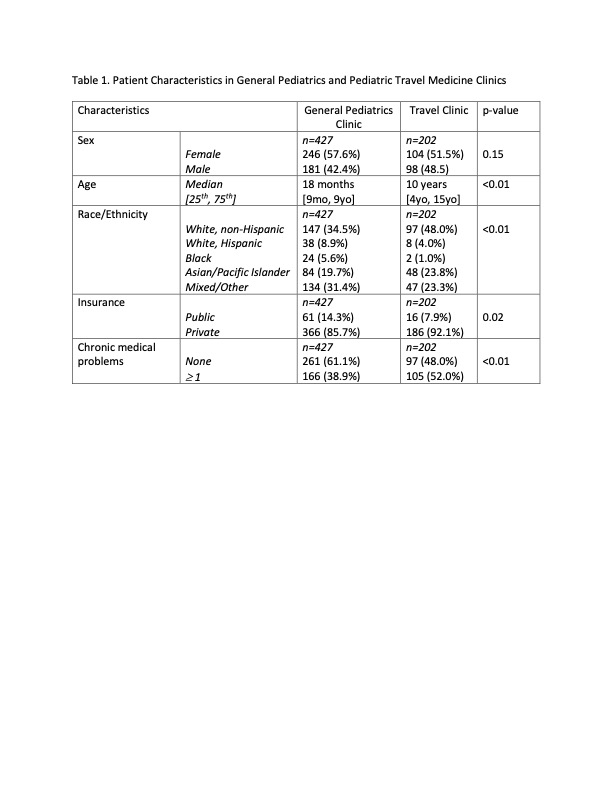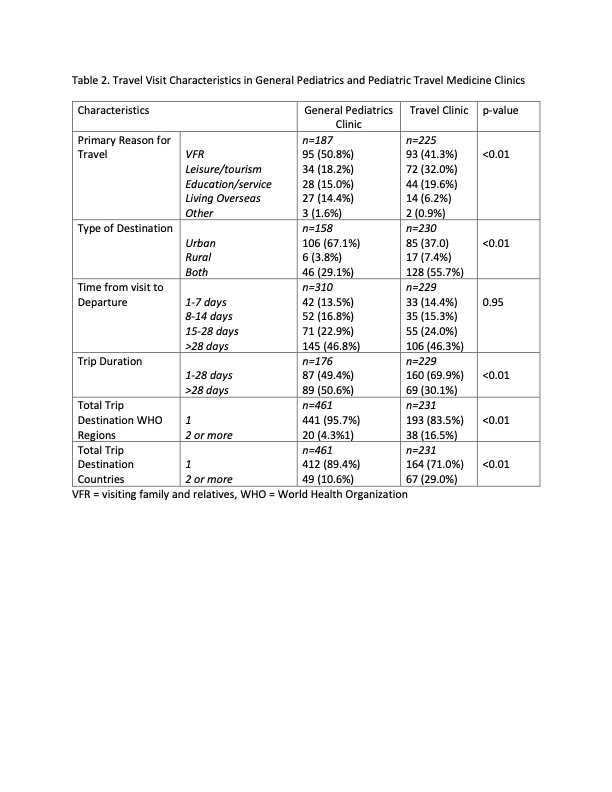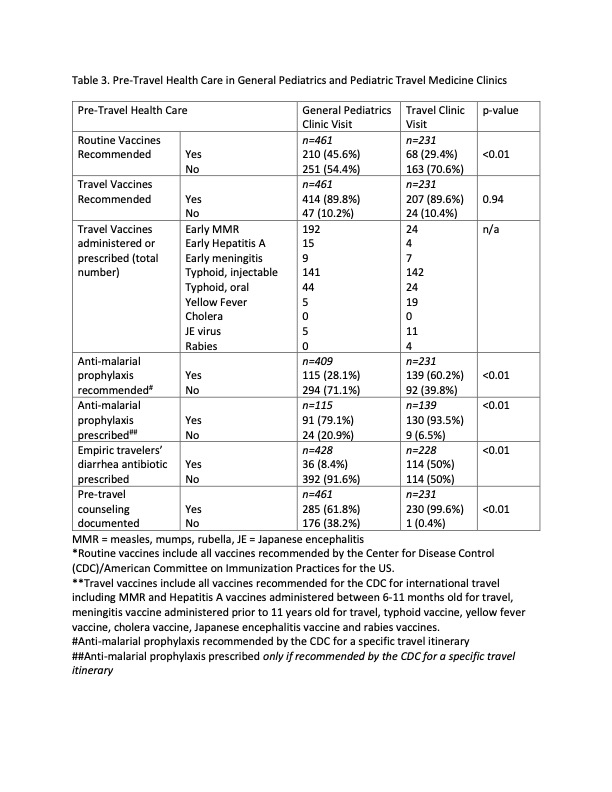General Pediatrics: All Areas
General Pediatrics 5
385 - Pre-Travel Health Preparation in the General Pediatrics and Pediatric Travel Medicine Clinics
Sunday, April 30, 2023
3:30 PM - 6:00 PM ET
Poster Number: 385
Publication Number: 385.314
Publication Number: 385.314
Leah D. Kern, UC San Diego, San Diego, CA, United States; Cindy C. Reynolds, University of California, San Diego School of Medicine, San Diego, CA, United States

Leah D. Kern, MD, MPH (she/her/hers)
Assoc. Professor of Pediatrics
UC San Diego
San Diego, California, United States
Presenting Author(s)
Background: Children account for ~10% of US global travelers, but little is known about pre-travel health care provided by general pediatricians compared with pediatric travel medicine specialists in the US.
Objective: We examined the pre-travel health preparation of children and adolescents, and determined how care differs between general pediatrics and pediatric travel medicine clinic.
Design/Methods: A retrospective chart review of children receiving pre-travel health care at two large general pediatric clinics over a five-year period Sept. 1, 2014, to Aug. 31 2019. Patients had either 1) a Travel Clinic visit with a pediatric travel medicine specialist or 2) a General Pediatrician (Gen Ped) visit and received a “counseling for travel” diagnosis, travel vaccine and/or antimalarial prescription. Descriptive statistics were used to describe patient characteristics, travel plans, and provision of pre-travel health services including vaccinations, antimalarial prophylaxis, and travel advice. Chi-square tests were used to determine differences in patient characteristics, travel plans and pre-travel health services provided at Travel and Gen Ped visits.
Results: Between Sept 2014 and Aug 2019, 629 children received pre-travel health preparation; 202 (32%) at Travel and 427 (68%) at Gen Ped visits. Children attending Travel clinic were older compared with Gen Ped clinic (median age 10 years vs 18 months, p< 0.01), less likely to have public insurance (7.9% vs 14.3%, p=0.02), and more likely to have a chronic medical problem (52.0% vs 38.9%, p< 0.01) (Table 1). Although time to departure was similar, reason for travel, trip duration and destination characteristics differed between Travel and Gen Ped visits (Table 2). Although travel vaccines were equally recommended (p=0.94), children were more likely to receive anti-malarial prophylaxis if recommended by the Centers for Disease Control (93.5% vs 79.1%, p< 0.01), travelers’ diarrhea antibiotic (50% vs 8.4%, p< 0.01) and pre-travel counseling (99.6% vs 61.8%, p< 0.01) at Travel versus Gen Ped visits (Table 3).
Conclusion(s): General pediatricians provided the majority of pre-travel care over a 5-year period, including for those with public insurance, but children were more likely to receive antimalarial prophylaxis and travel advice at travel medicine specialist visits. This highlights the need for more travel medicine training for general pediatricians, and for equitable access to travel medicine services for children with public insurance.



